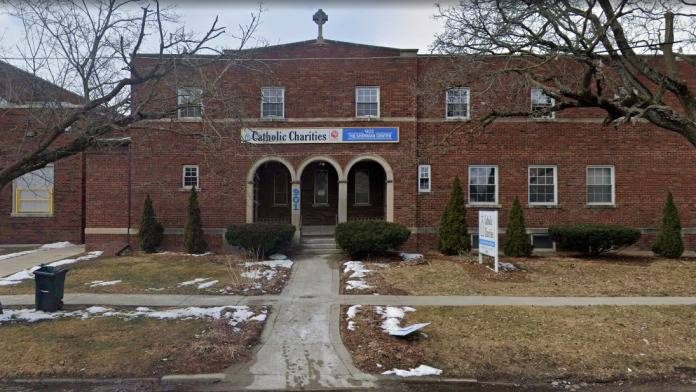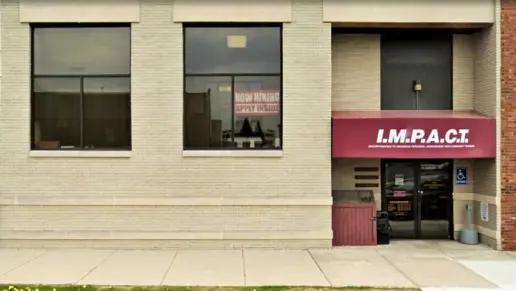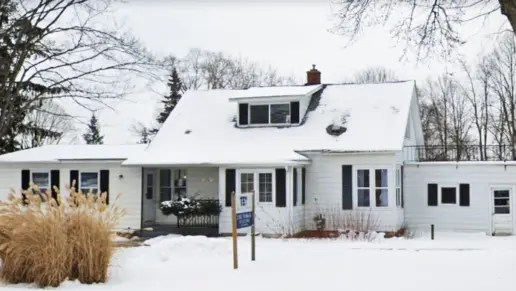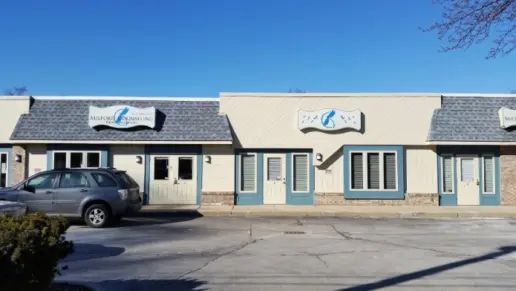Catholic Charities is an amazing organization offering some many resources and opportunities to the vulnerable population offering life and hope to many who may hopeless and alone. This faith based organization focuses on servicing the community while serving God. I like th ...
About Catholic Charities of Shiawassee and Genesee Counties
Catholic Charities, a respected national nonprofit network, aims to alleviate poverty and uplift people facing some of life’s most daunting challenges. Their center in Flint, Michigan, serves clients throughout Shiawassee and Genesee Counties including those with substance use disorder (SUD) and related mental health conditions such as depression, anxiety, and post-traumatic stress. The organization is Christian at its core but it serves people of all faiths.
If you’re a Michigander seeking substance abuse treatment but worry about your ability to pay then you may want to consider Catholic Charities of Shiawassee and Genesee Counties. The organization doesn’t have an intensive drug rehab facility but does provide a broad spectrum of other support services.
These services include individual and family mental health counseling for people of all ages which can help you address the root of your addiction and cope with its life-altering effects. Christian counselors are available upon request, if that’s important to you, but they also offer secular clinicians.
Catholic Charities also provides services to help you meet basic life needs, such as food and shelter, through programs like the Sister Claudia Burke Center for Hope in Genesee County. In addition to counseling and substance use treatment and recovery services, the center has a warming and cooling shelter to protect unhoused people from inclement weather, a soup kitchen, clothing bank and help with referrals for housing, food and furniture.
If you’ve recently been released from prison then Catholic Charities’ Offender Success program might be especially beneficial for you. Re-entering society can feel daunting but it’s important to know you’re not alone. This organization can help you gather the tools and resources you need including job skills and parole supervision, to stay on track with your life and sobriety.
Latest Reviews
Rehab Score
Gallery

Location
Accepted Insurance
Other Forms of Payment
Medicaid is a state based program that helps lower-income individuals and families pay for healthcare. Medicaid covers addiction treatment so those enrolled can use their coverage to pay for rehab. When a program accepts Medicaid the client often pays very little or nothing out of their own pocket.
Private insurance refers to any kind of healthcare coverage that isn't from the state or federal government. This includes individual and family plans offered by an employer or purchased from the Insurance Marketplace. Every plan will have different requirements and out of pocket costs so be sure to get the full details before you start treatment.
Self-pay involves paying for treatment out of your own pocket. You can use savings or credit, get a personal loan, or receive help from family and friends to fund your treatment. If you don't have insurance or your insurance plan doesn't cover a specific program, self-pay can help ensure you still get the care you need.
Financial aid can take many forms. Centers may have grants or scholarships available to clients who meet eligibility requirements. Programs that receive SAMHSA grants may have financial aid available for those who need treatment as well. Grants and scholarships can help you pai for treatment without having to repay.
Sliding scale payments are based on a client's income and family size. The goal is to make treatment affordable to everyone. By taking these factors into account, addiction recovery care providers help ensure that your treatment does not become a financial burden to you or your family, eliminating one barrier to care.
Medicare is a federal program that provides health insurance for those 65 and older. It also serves people under 65 with chronic and disabling health challenges. To use Medicare for addiction treatment you need to find a program that accepts Medicare and is in network with your plan. Out of pocket costs and preauthorization requirements vary, so always check with your provider.
Military members, veterans, and eligible dependents have access to specific insurance programs that help them get the care they need. TRICARE and VA insurance can help you access low cost or no cost addiction and mental health treatment. Programs that accept military insurance often have targeted treatment focused on the unique challenges military members, veterans, and their families face.
Addiction Treatments
Levels of Care
Treatments
The goal of treatment for alcoholism is abstinence. Those with poor social support, poor motivation, or psychiatric disorders tend to relapse within a few years of treatment. For these people, success is measured by longer periods of abstinence, reduced use of alcohol, better health, and improved social functioning. Recovery and Maintenance are usually based on 12 step programs and AA meetings.
Drug rehab in Michigan provides personalized treatment to help individuals break this cycle and regain control of their lives. Treatment methods are used in various levels of care, including inpatient rehab, partial hospitalization programs, intensive outpatient programs, and standard outpatient treatment.
Many of those suffering from addiction also suffer from mental or emotional illnesses like schizophrenia, bipolar disorder, depression, or anxiety disorders. Specialized services are provided for individuals experiencing substance use in addition to another mental illness. The program my include psychiatric, individual, and group treatments.
A combined mental health and substance abuse rehab has the staff and resources available to handle individuals with both mental health and substance abuse issues. It can be challenging to determine where a specific symptom stems from (a mental health issue or an issue related to substance abuse), so mental health and substance abuse professionals are helpful in detangling symptoms and keeping treatment on track.
Opioid rehabs specialize in supporting those recovering from opioid addiction. They treat those suffering from addiction to illegal opioids like heroin, as well as prescription drugs like oxycodone. These centers typically combine both physical as well as mental and emotional support to help stop addiction. Physical support often includes medical detox and subsequent medical support (including medication), and mental support includes in-depth therapy to address the underlying causes of addiction.
Programs


Clinical Services
Cognitive Behavioral Therapy (CBT) is a therapy modality that focuses on the relationship between one's thoughts, feelings, and behaviors. It is used to establish and allow for healthy responses to thoughts and feelings (instead of unhealthy responses, like using drugs or alcohol). CBT has been proven effective for recovering addicts of all kinds, and is used to strengthen a patient's own self-awareness and ability to self-regulate. CBT allows individuals to monitor their own emotional state, become more adept at communicating with others, and manage stress without needing to engage in substance abuse.
Whether a marriage or other committed relationship, an intimate partnership is one of the most important aspects of a person's life. Drug and alcohol addiction affects both members of a couple in deep and meaningful ways, as does rehab and recovery. Couples therapy and other couples-focused treatment programs are significant parts of exploring triggers of addiction, as well as learning how to build healthy patterns to support ongoing sobriety.
Some groups offered include: System Training for Effective Parenting (STEP) – This seven week program is designed to help parents understand misbehaviors, build self esteem, develop communication skills, as well as to learn safe and effective discipline techniques. Parenting Young Children – For parents of children ages newborn to five years. Kinship Caregivers – This prevention program offers guidance, training, support, and case management, as well as respite care and support groups to persons raising a relative’s minor child.
Group therapy is any therapeutic work that happens in a group (not one-on-one). There are a number of different group therapy modalities, including support groups, experiential therapy, psycho-education, and more. Group therapy involves treatment as well as processing interaction between group members.
In individual therapy, a patient meets one-on-one with a trained psychologist or counselor. Therapy is a pivotal part of effective substance abuse treatment, as it often covers root causes of addiction, including challenges faced by the patient in their social, family, and work/school life.
Mr. Gaines Gardening PLUS Program – This is a community-based mentoring program for at-risk adolescents. Participants learn job skills through classroom instruction, marketing and growing produce, as well as selling their harvest at the Flint Farmer’s Market.
Trauma therapy addresses traumatic incidents from a client's past that are likely affecting their present-day experience. Trauma is often one of the primary triggers and potential causes of addiction, and can stem from child sexual abuse, domestic violence, having a parent with a mental illness, losing one or both parents at a young age, teenage or adult sexual assault, or any number of other factors. The purpose of trauma therapy is to allow a patient to process trauma and move through and past it, with the help of trained and compassionate mental health professionals.
Amenities
-
Residential Setting
-
Private Setting
Contact Information
901 Chippewa Street
Flint, MI 48503










